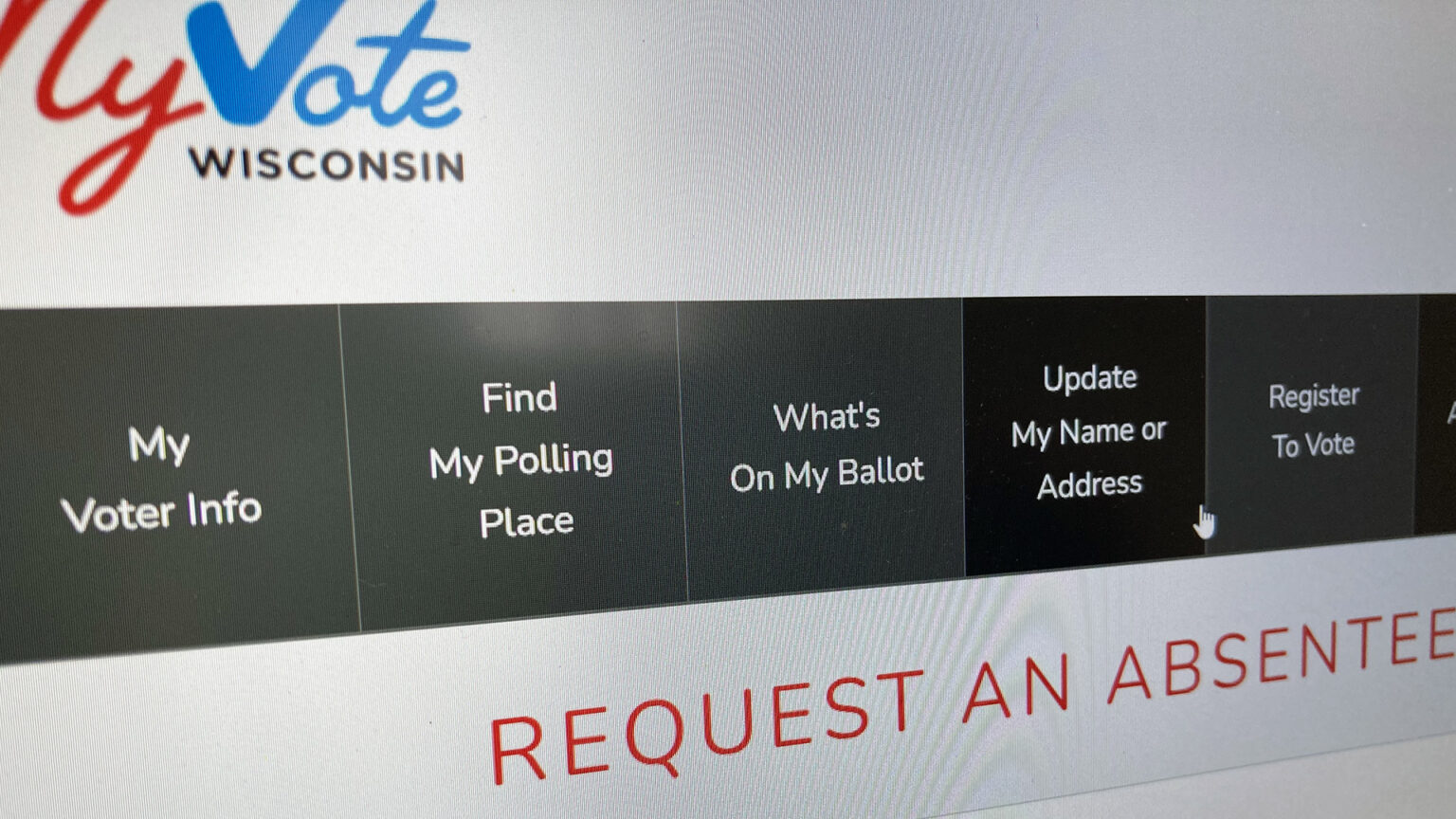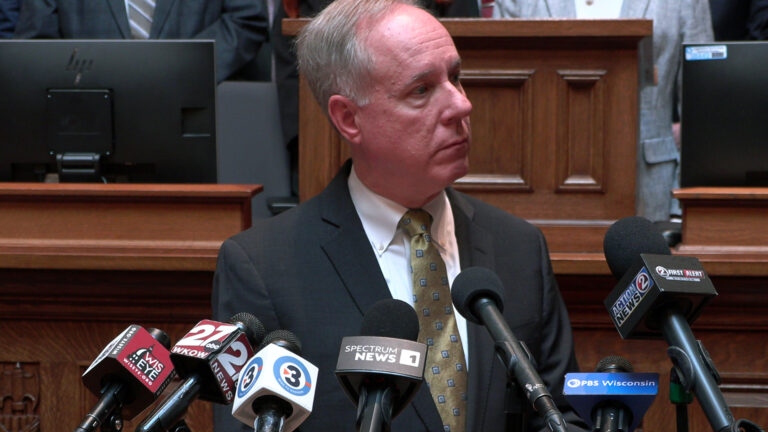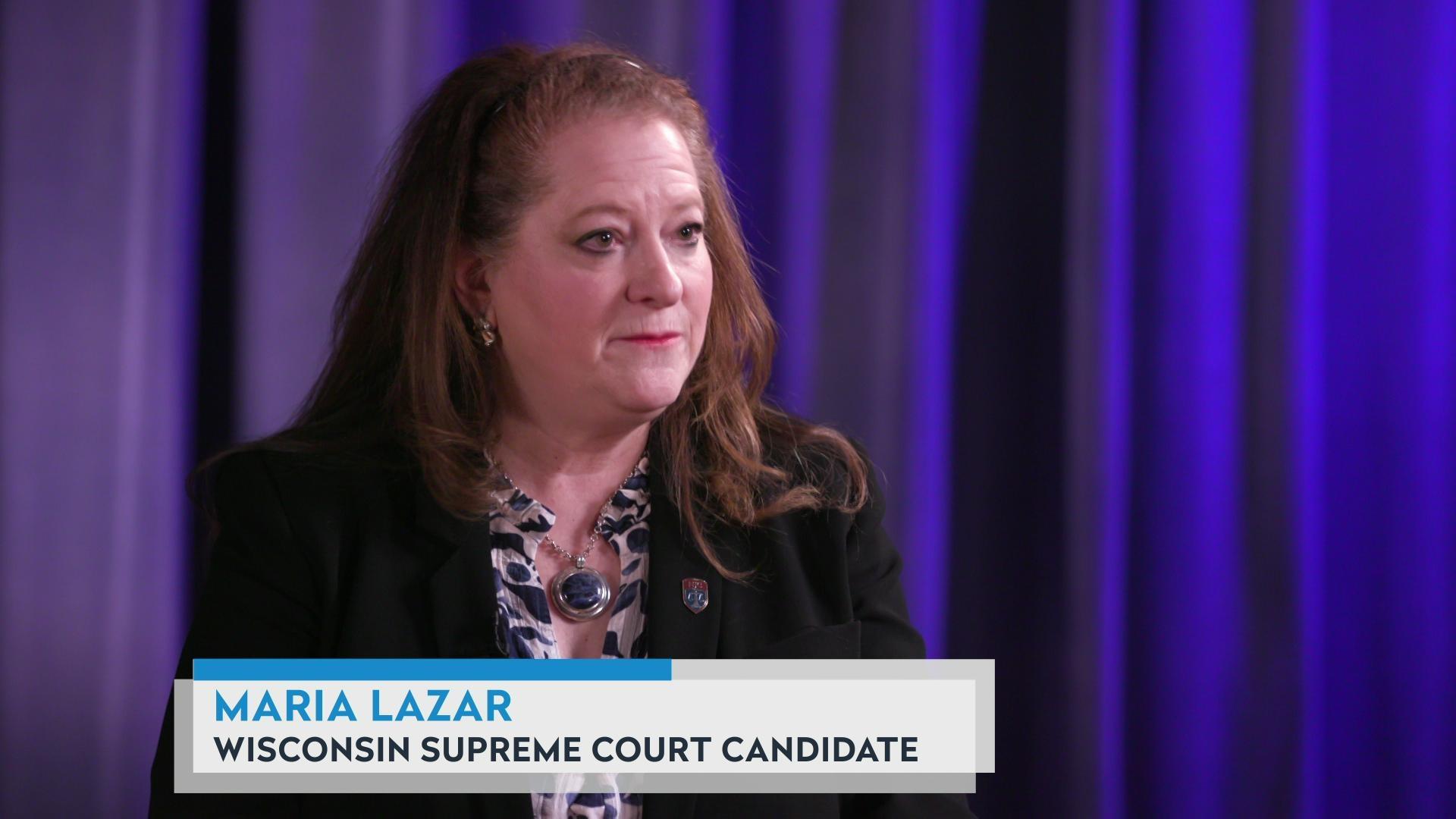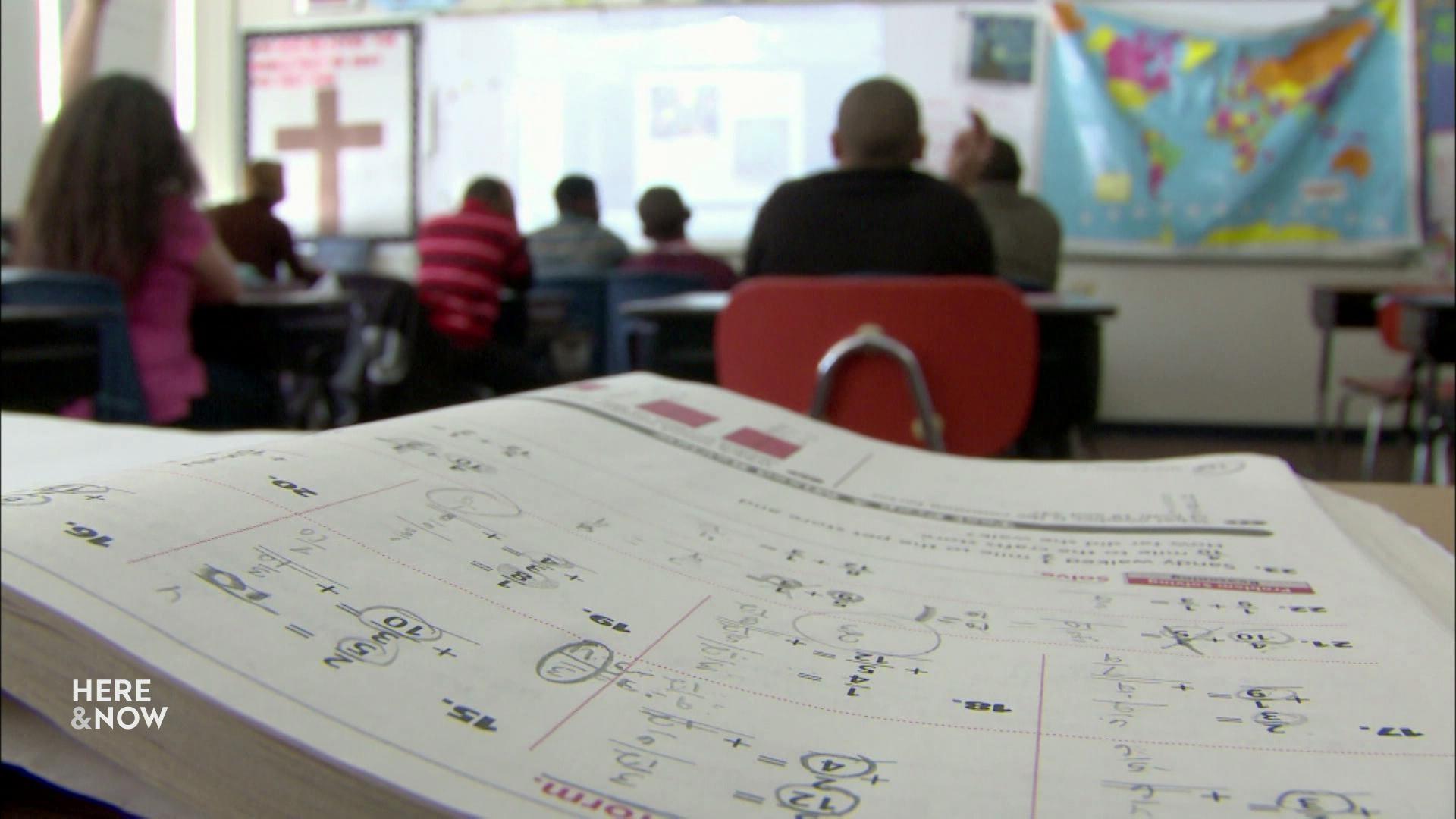Complaint charges Milwaukee election official with fraud
Prosecutors have charged a former top Milwaukee elections official with felony misconduct in office after she allegedly sent falsely obtained military absentee ballots to a Republican state lawmaker who has advanced election fraud conspiracy theories.
Associated Press
November 4, 2022

Kimberly Zapata, deputy director of the Milwaukee Election Commission, was fired after using the state's voter database website MyVote Wisconsin to send falsely obtained military absentee ballots to the home of a Republican state lawmaker who has been an outspoken critic of how the 2020 election was administered, the city's mayor on Nov. 3, 2022. (Credit: PBS Wisconsin)

MADISON, Wis. (AP) — A former Milwaukee elections official charged Nov. 4 with sending fake military ballots to a Republican legislator who has advanced election fraud conspiracy theories told investigators she did it because she wanted to expose real vulnerabilities in Wisconsin elections, according to a criminal complaint.
Prosecutors charged Kimberly Zapata, who was fired earlier in the week, with felony misconduct in office and three misdemeanor counts of election fraud. She could face up to five years behind bars if convicted of all four counts. Her attorney, Michael Maistelman, declined comment.
The charges come just four days ahead of Election Day and as election officials are increasingly concerned about threats from within their own agencies. Officials in battleground states like Wisconsin are seeing record numbers of partisan poll worker nominations that could land skeptics on the front lines of polling places.
Zapata took over as the Milwaukee Elections Commission’s deputy director in the summer of 2022. She told investigators that commission workers have been dealing with threats, harassment and accusations that they’re lying and hiding things and she was feeling overwhelmed, the complaint said.
On the morning of Oct. 25, she made up three names with fake Social Security numbers and requested military absentee ballots in those names through MyVote Wisconsin, the state’s voter database, the complaint said.
Under Wisconsin law, someone requesting a military absentee ballot does not need to register to vote or provide any photo ID to obtain an absentee ballot. Any request automatically results in a ballot being issued, according to the complaint.
Zapata told investigators she used her government access to MyVote Wisconsin’s voter registration records to find state Rep. Janel Brandtjen’s address and had the ballots sent to her home in Menomonee Falls, the complaint said.
Brandtjen has advocated for decertifying President Joe Biden’s 2020 win in Wisconsin for the last two years and has espoused conspiracy theories supporting her position.
Multiple recounts and court rulings have confirmed that Biden legitimately defeated former President Donald Trump by almost 21,000 votes to win Wisconsin.
The complaint said Claire Woodall-Vogg, the Milwaukee Election Commission’s executive director, sent Zapata an article on Oct. 31 about someone applying for military ballots and sending them to Brandtjen. She sent Zapata a statement from Brandtjen in which Brandtjen remarked about how easy it was to receive military ballots, to which Zapata responded “She has a point,” according to the complaint.
Zapata told Woodall-Vogg on Nov. 1 that she created the fake voters and had the ballots sent to the lawmaker “to show how easy it is to commit fraud in this manner,” the complaint said.
“Zapata did this because she wanted to make a point that there is fraud in existence,” the complaint said. “She stated she wanted the truth to come out so that they could focus on actual problems.”
Wisconsin Elections Commission Administrator Meagan Wolfe on Nov. 3 called Zapata’s alleged action “a deeply unfortunate violation of trust” but said election fraud remains extremely rare and is quickly discovered.
The commission said it has safeguards to catch fraudulent absentee ballot requests. The elections commission staff monitors the statewide voter registration system for indications of unauthorized requests. The MyVote website also requires a person requesting a ballot to verify that they are the person asking for it, along with a warning about potential penalties for committing fraud.
Milwaukee Mayor Cavalier Johnson said Nov. 3 that Zapata was fired immediately after city officials learned of her alleged misconduct.
The case against Zapata mirrors one against a Racine man who requested and received absentee ballots in the names of legislators and local officials in July. That man, Harry Wait, also said he wanted to expose vulnerabilities in the state’s elections system. He faces up to 13 years in prison if convicted on two misdemeanor counts of election fraud and two felony counts of identity theft.
 Passport
Passport











Follow Us